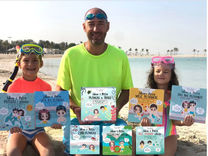From a swimmer to a coach
- Oct 7, 2019
- 4 min read
How could one choose a right swimming coach for his/her kid? How could one develop a healthy attitude to competition in a child, to swim and enjoy at the same time? How difficult it is to combine sport with school? Who trains whom, and where are the parent – coach limits? The dilemma about these questions has been resolved in the previous texts. However, there is another one: Does a good swimmer mean a good coach?
In every field there are always those who are better at theory than at practice, and vice versa. This is why we have professors who make the amphitheatres full of students and who transfer their knowledge and experience in a great manner, while on the other hand we have the leading
academic experts who are best in their field only when they work in a «lab using their microscopes”. It’s simple, some know how to tell a story, a joke, to convey a message, and some lose a thread after the second sentence… The same applies to swimmers, coaches, however, everything can be learnt if there is a wish.
If a swimmer tends to be a great coach, it’s necessary for him/her to:
Know how to tell a joke, a good story: It’s not easy to be a coach and a pedagogue at the
same time. One should know how to properly transfer the knowledge to children, both to those who are in the water for the first time and those who are experienced swimmers. Try to tell a joke, or a story to five-year-old children so that they can understand you right away and laugh. If it happens, then you’re on a good way to pass them your knowledge. Of course, the positive energy the coach is to transfer to kids is crucial, since that’s how they will make a progress, and acquire knowledge and skills more easily. On the other hand, if you fail to do it at first, stay persistent, work on your skills, because the teaching skills can be mastered.
When the youngest children, three-year-old ones, come to their first swimming lesson, and when they need to get into the water for the first time with someone who is not their mum or dad, it often gets quite tense. I try to foresee the reaction even before the crying starts. With a positive talk and a wide smile, I take them by the hand and show them the toys we have and let them choose whichever they want to swim together with during the lesson. Trust me, in the end, it gets hard to take them out of the water…
Know to «count to 1000»: To become a quality coach, being a successful swimmer with amazing results is not enough. Because training children, non-swimmers, requires patience, to
start with. Sometimes you need to repeat the same thing for a couple of times, so that the kids would understand what they are supposed to do. Certainly, for that approach one always needs to find a good balance, just to avoid the counter effect. This is why it is recommended that every coach should be familiar with a bit of the sport psychology.
I had some cases with a swimmer, who couldn’t calm down her body while swimming crawl technique. I applied all the exercises I thought could help her, but she simply needed some time
to mature and realise what she was exactly expected to do. I realised it on time, so I didn’t push her, and I also mentioned that to her parents. After some time, it dawned on her and now she is one of the best crawl swimmers in my group. Every child needs his/her time.
Create a unique training style: Every swimmer growing into a quality coach needs to create a unique training and working style, which will make the children love him/her and respect him/her, and it is also necessary that he/she keeps the children’s attention all the time. Don’t expect from others «to design» your trainings... We are not talking here about reinventing the wheel, it’s enough to put all your previous knowledge and experience on paper and be inventive and break the everyday routine of the training, to make sure your trainings are diverse. In particular, the coach should master all the technique elements, and all swimming elements in general, as well as the relevant contents of modern swimming and the training process. Sometimes, out of no specific reason, I simply ask the swimmers to swim with their winter socks or trainers on, just to try something new, funny, refreshing…
Be a planner, and a person with a vision: Every training, as every class in school, should be
well planned… the methodology and the theory of a sport training should contain the necessary elements depending on the period of the training process.., Every swimming coach should set clear goals to himself/herself and to the kids, know why he/she is teaching something, and what are the things the kids need to remember. On the other hand, it’s not easy to plan the pace, specific trainings, the resting time necessary for your swimmers, especially when you have a large group involving various ages and different nationalities, and the target competition of the season is the national championship of their country.. it’s like burning in hell…
The process of turning a swimmer into a quality coach is not easy. Nevertheless, every smile of a child, when they finish the training and leave the pool, will confirm that you’re doing it well!



























































Comments